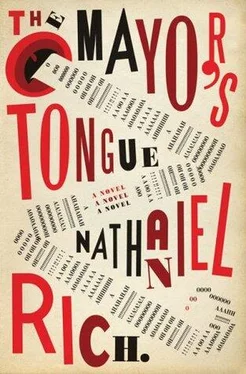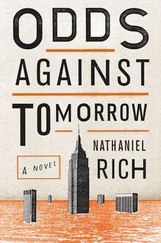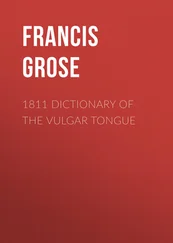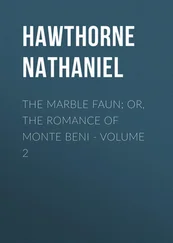Back in Eakins's novella, Turk wanders into a forest, lured by a fragrant scent of berries. The brush grows dense, and he soon is lost in a green-shaded darkness. He shivers and hiccups with hunger. He comes across a giant maple tree. The trunk is hollowed out, and glows like a lightbulb, with a sallow luminescence. Inside the hollow there sits a tiny man hunched over a bowl of gruel. He has a white-powdered face, pointy ears, and strawberry lips. (Eugene had seen this before: Eakins was obsessed with wood sprites, they were always cropping up in his stories.)
"My friend," the sprite exclaims, in a warbling soprano, "have I a message for you!"
Turk jumps back. But his hunger emboldens him.
"Do you have, by any chance," asks Turk, "a morsel or a crumb? I'm starving, been wandering for days."
The wood sprite offers his gruel, which looks like watery cottage cheese dyed lavender. Turk takes it gratefully, waving off the man's miniature spoon, and eats the whole thing.
"More where that's come from," says the sprite. "Alcida," he adds.
"Yes?"
"Alcida is far away from this wood."
At that moment in his reading, Eugene heard from across the room an ominous rumbling in Abe's bowels. He stood up, inserting the postcard into Eakins's book, and zipped behind Abe, leaving the slippers on the floor where he had found them.
"Ah yes," said Abe, his eyes opening to find Eugene moving about furtively beside him. "Now, where was I?"
"I believe you were studying these report cards from Eakins's middle school." Eugene handed a sheaf of papers to Abe. Eugene pretended not to notice how little Abe had progressed on the biography since Sonia left for Italy, and made an effort to sound cheerful about the project.
"I see. That's right. Now where were YOU?"
"Just straightening things out on your desk here, Abe."
Abe squinted at him for a moment before directing his attention back to the papers in his hand.
"Oh, Eugene?"
"Still here."
"When did this arrive?"
There was a postcard lying on top of Abe's desk, but Eugene had never seen it before. The image was of a giant, rolling field, framed by a mountain ridge in golden light. The lettering said "Der Karst." Abe turned the postcard over.
Dear Abe,
I've been found. By your daughter no less. What a charming, delightful creature — how dear she has become. We're off to my hidden retreat. We shan't be found anon, begab!
There was no signature.
"It's him all right," said Abe. "That's his handwriting."
"I see." Could Abe possibly mean it was from Eakins? Eugene tried to compare in his mind the handwriting on the card with Sonia's notes. He thought it looked similar but couldn't be certain.
"You see, do you?" said Abe. "Well. It's been over a month now since she's sent a note. I'm worried SICK to my bowels."
"I'm sure she'll write again. Soon."
"No no no no no. No! I haven't heard from her, Frank knows nothing—"
"Frank?"
"Frank Lang. Don't you know him? He's our man in Trieste. She's meant to check in with him from time to time. He's completely unreliable, so I don't have him do any of the work, but he's a FRIEND, you see, and he would let me know if something happened to Alison. If she needed help. Well I've called him over and over and he says he has not seen her since her first week there."
Abe swiveled in his chair, so that he was facing Eugene. He was bloodshot and breathless, and for the first time since Eugene had met him, Abe spoke in a quiet voice.
"She's gone," he said. "She's gone."
Eugene protested but Abe ignored him.
"Eakins has stolen her away. Where he's going, she won't ever want to leave. She might never return to me. I can't go find her. I'm too damn infirm."
Eugene was having trouble making sense of what Abe was saying. He wondered what the wood sprite knew about Alcida. He thought, "Triste in Trieste."
"You're saying she's off with him — with Constance Eakins— in the mountains?"
"I DON'T SEE WHERE THE HELL ELSE SHE WOULD BE! DO YOU?"
Abe slumped into his chair and swiveled again, so that his back was to Eugene. The old man shook his head, over and over, occasionally mumbling something in confused despair. He held papers in his hand, but he did not read them, and finally he let them fall to the ground. Eugene sat back down on the leather chair. He didn't bother to pretend to work. He paused again over Sonia's last postcard to him, without being able to reach any further conclusions. Then he turned to Eakins's novella and read distractedly. Turk was interrogating the wood sprite about his beloved Alcida:
"Where," says Turk, "is Alcida?"
"You might ask," replies the sprite, " what she is. For she is not human."
"Liar. Where is she?"
"She's my sister," says the sprite. "She is a sprite. A sprite like me."
"That's a lie. It's true she is a very small girl. But you are lying to me."
"She loves you just the same," sighs the sprite. "Though I can't for the life of me see why."
"Just tell me where she is," says Turk. He is now spitting with anger. "I have nothing else to live for. I must find her."
"Very well," says the sprite. He gestures for Turk to come closer. Turk kneels and the sprite whispers something into his ear.
"After all," concludes the sprite, "it would be impossible for a sprite to save her from that place."
"My gods," says Turk, shocked by what he had heard. "Impossible!"
"Yes, it's a treacherous mission."
"It doesn't matter," says Turk. "Dear Alcida, I'm coming at last."
"So you'll do it?" asks the sprite.
"I'll do it! I'll find her!"
"HURRAY!" shouted Abe, spinning around in his chair. "Go find my girl!"
Rutherford and Mr. Schmitz sit motionless at the airport gate, each of them holding an unlit Parliament. Between Rutherford's knees is a brown leather captain's bag containing that day's international newspapers, a toothbrush, his great-grandfather's cast-iron compass, and for good luck, a head of garlic.
"Your Italian will greatly improve," says Mr. Schmitz.
"I hope so," says Rutherford. "It sure is rusty. Far more than I dared to admit to Rudy."
"And you'll be able to buy those Cuban cigars you love so much."
"Legally," says Rutherford.
"You can visit all the beautiful churches and stuff like that."
"Museums too, I wager."
"Perhaps," says Mr. Schmitz, looking askance, "you'll meet a woman there. An Italian woman."
"I would put the odds of such an occurrence at no better than twenty to one."
"She would have olive skin and beautiful dark brown hair."
"Now that's enough," says Rutherford, "of that."
Mr. Schmitz pulls the bottom edge of his T-shirt down so that it covers his stomach.
"It'll be just like your service days in the war."
"Not exactly," says Rutherford. "For one I won't be doing the cooking. I'll be writing about it. Second, I'll have the full use of my right arm, including all of my digits, and—"
"— and Carlita won't. . well, you know."
"Exist. No, of course not. She's quite long dead now. Alive only in my mind."
"I'm sorry," says Mr. Schmitz. "I'm having trouble speaking, or thinking, or putting my thoughts into words, or rather not putting them. . there."
"I want to repeat this one more time, Mr. Schmitz. You're my dearest friend in this world. I feel terrible. My heart is breaking."
Mr. Schmitz nods, rubbing his chin.
"But I must leave. And it's not just the money. Something else is drawing me back to Italy. Something from our past."
"I think I understand."
"And you have Mrs. Schmitz, who—"
"Isn't much comfort, I'm sorry to say."
Rutherford scolds his friend.
"It's so just the same," says Mr. Schmitz, with an impudent thrust of his wrist.
Читать дальше












